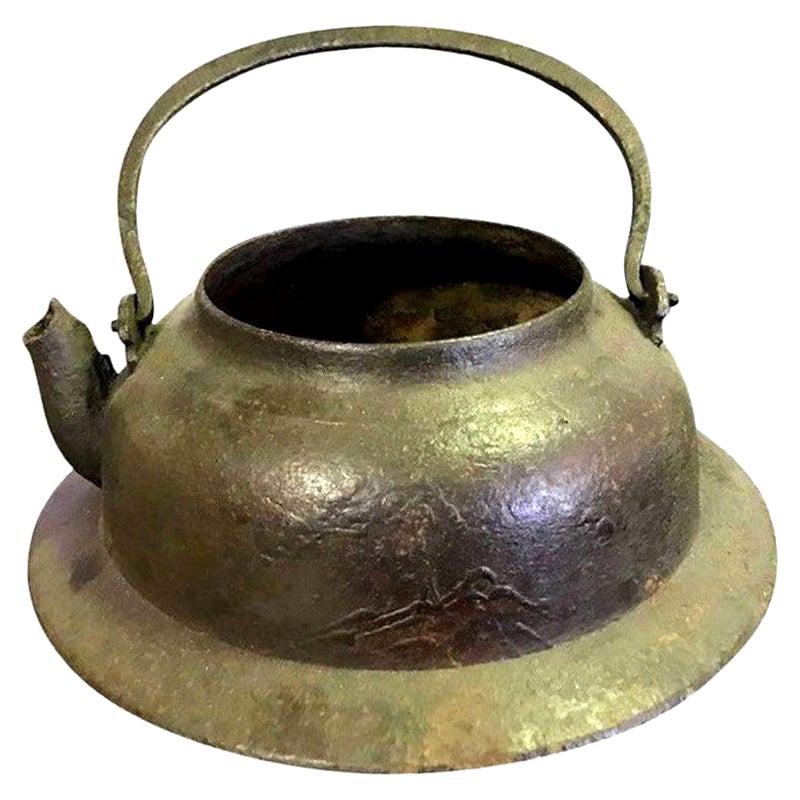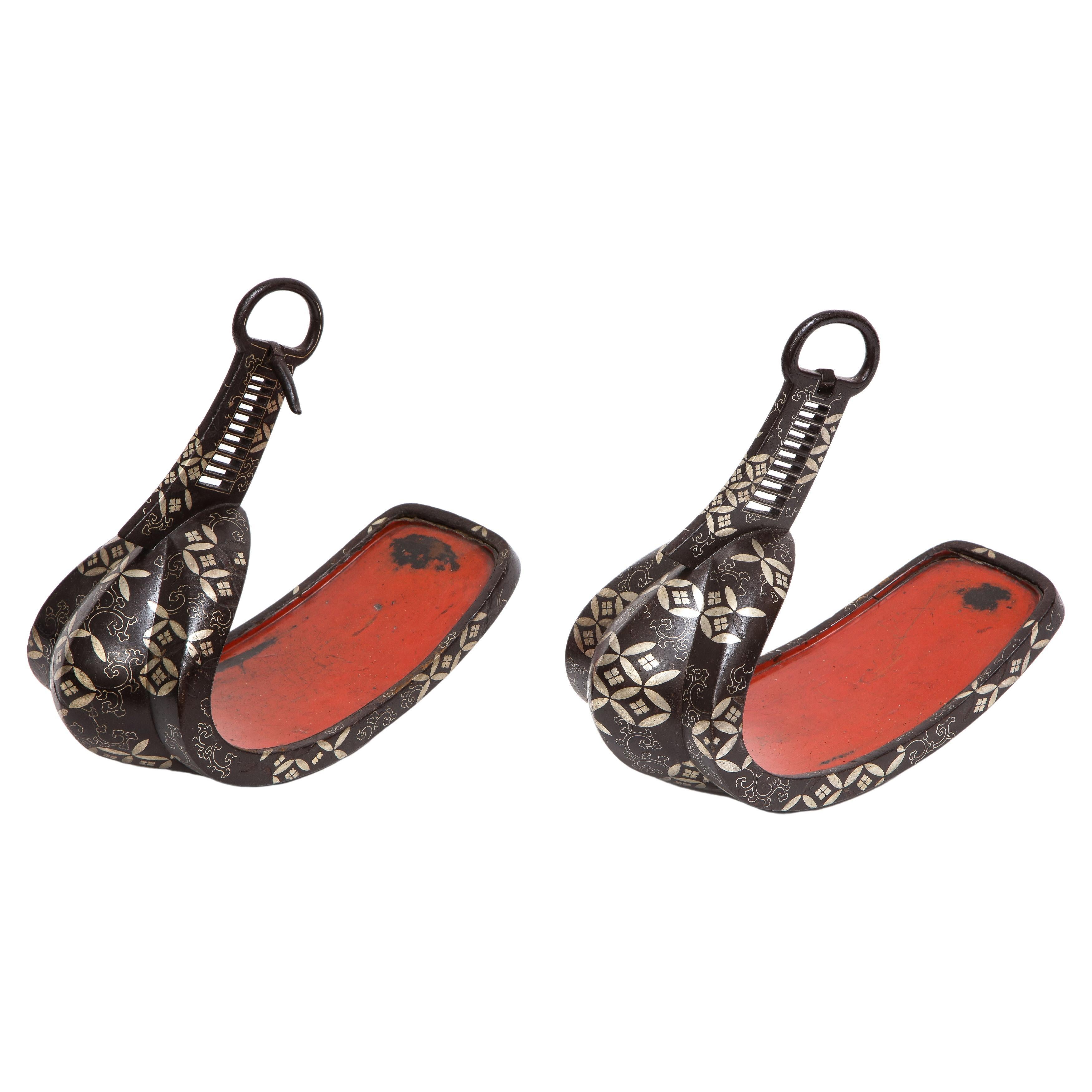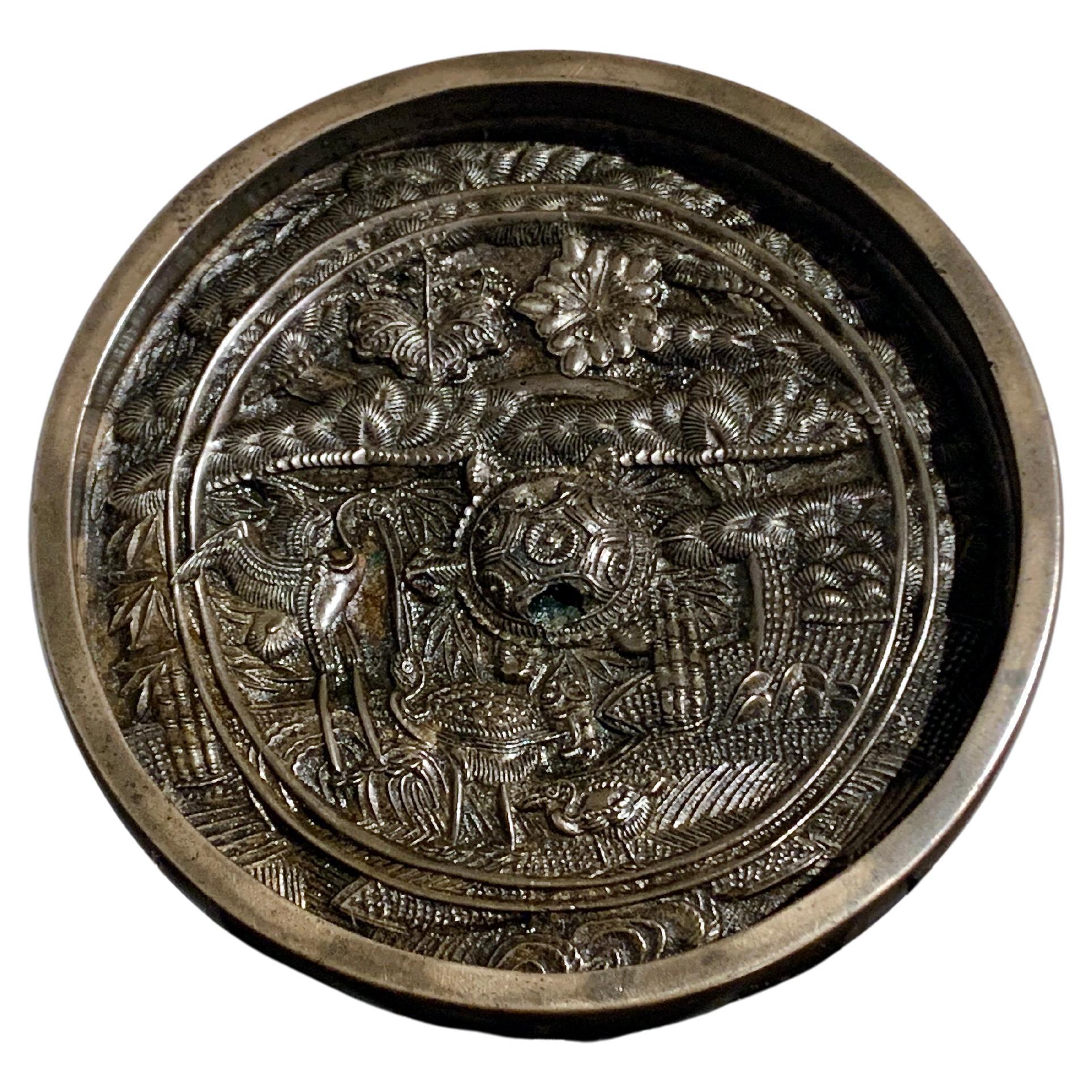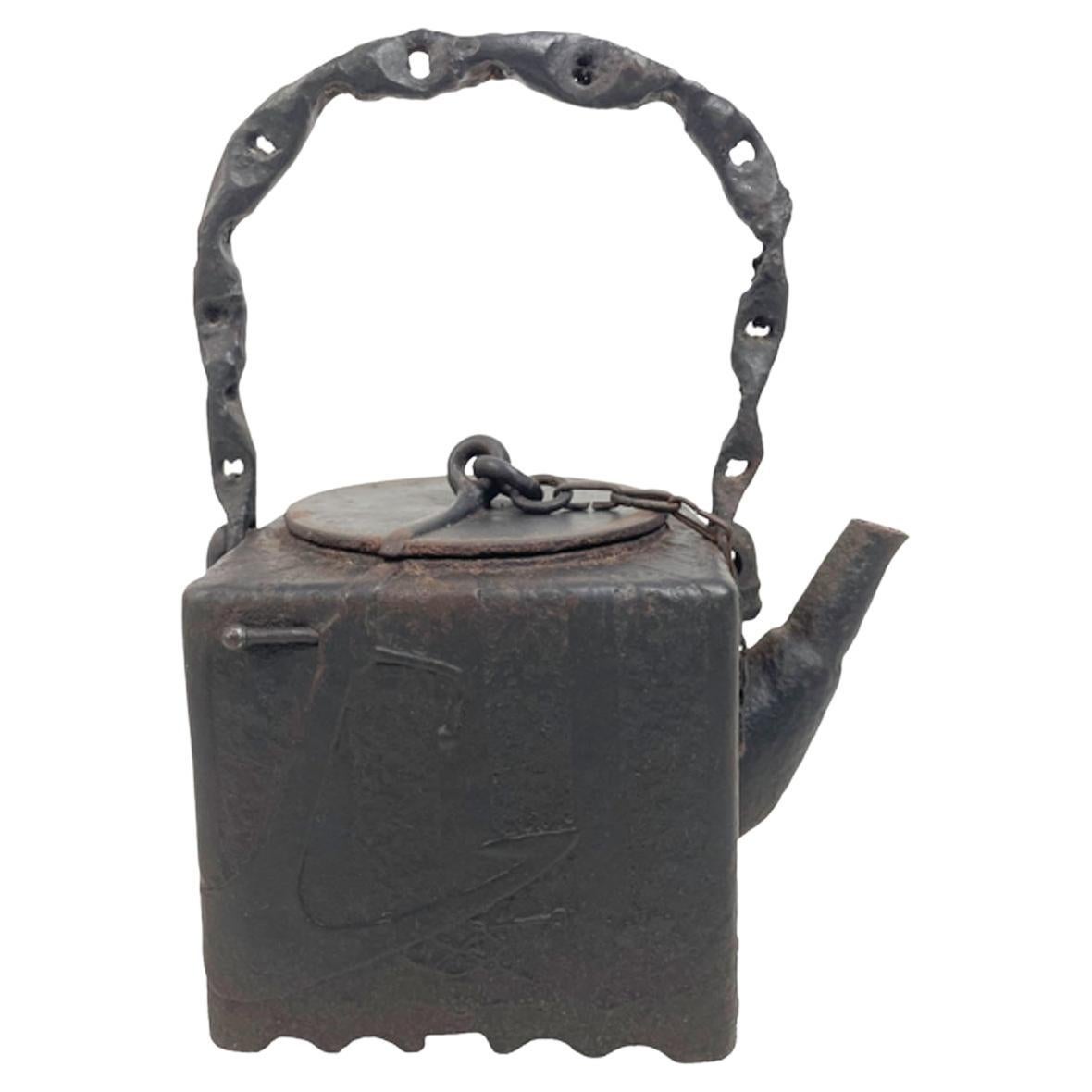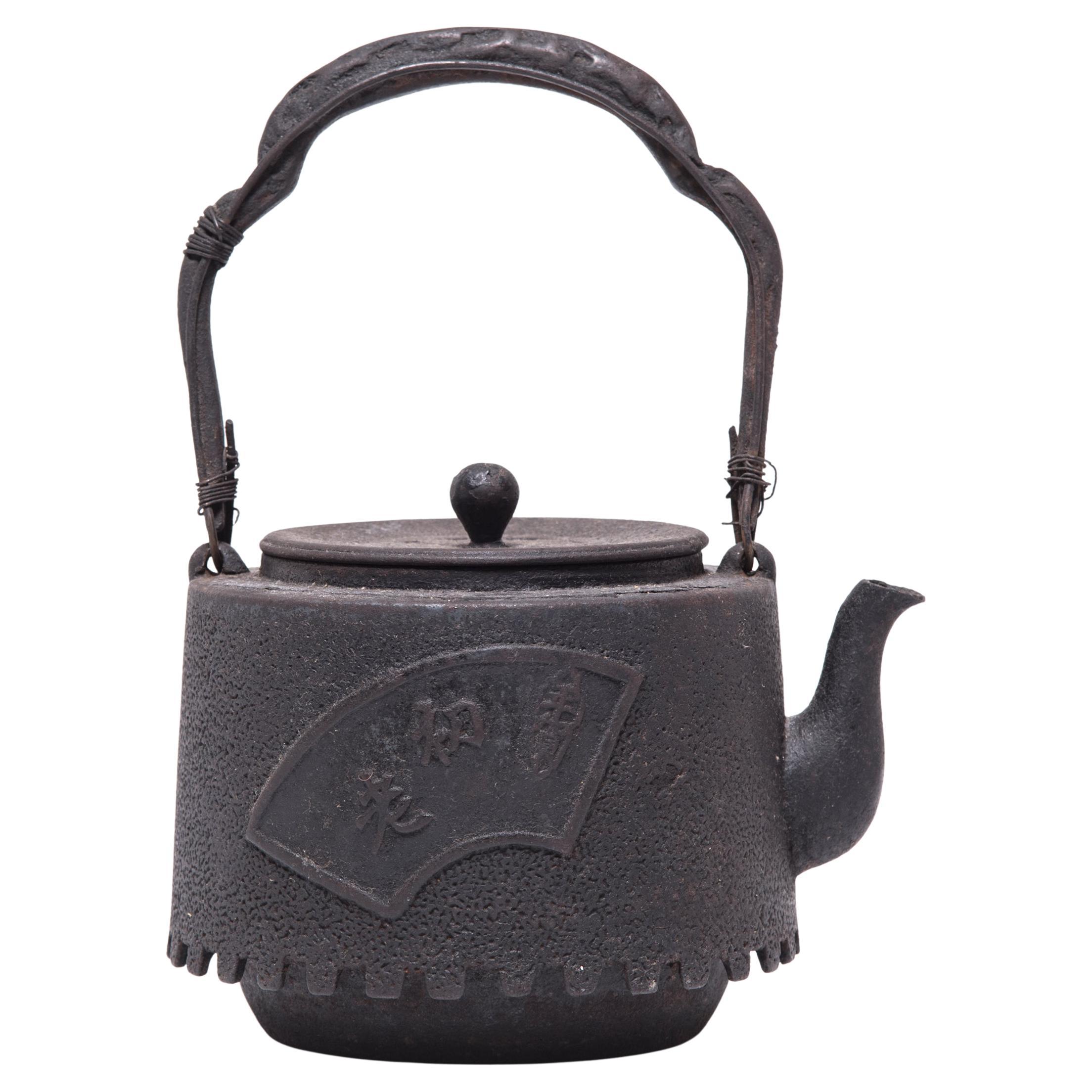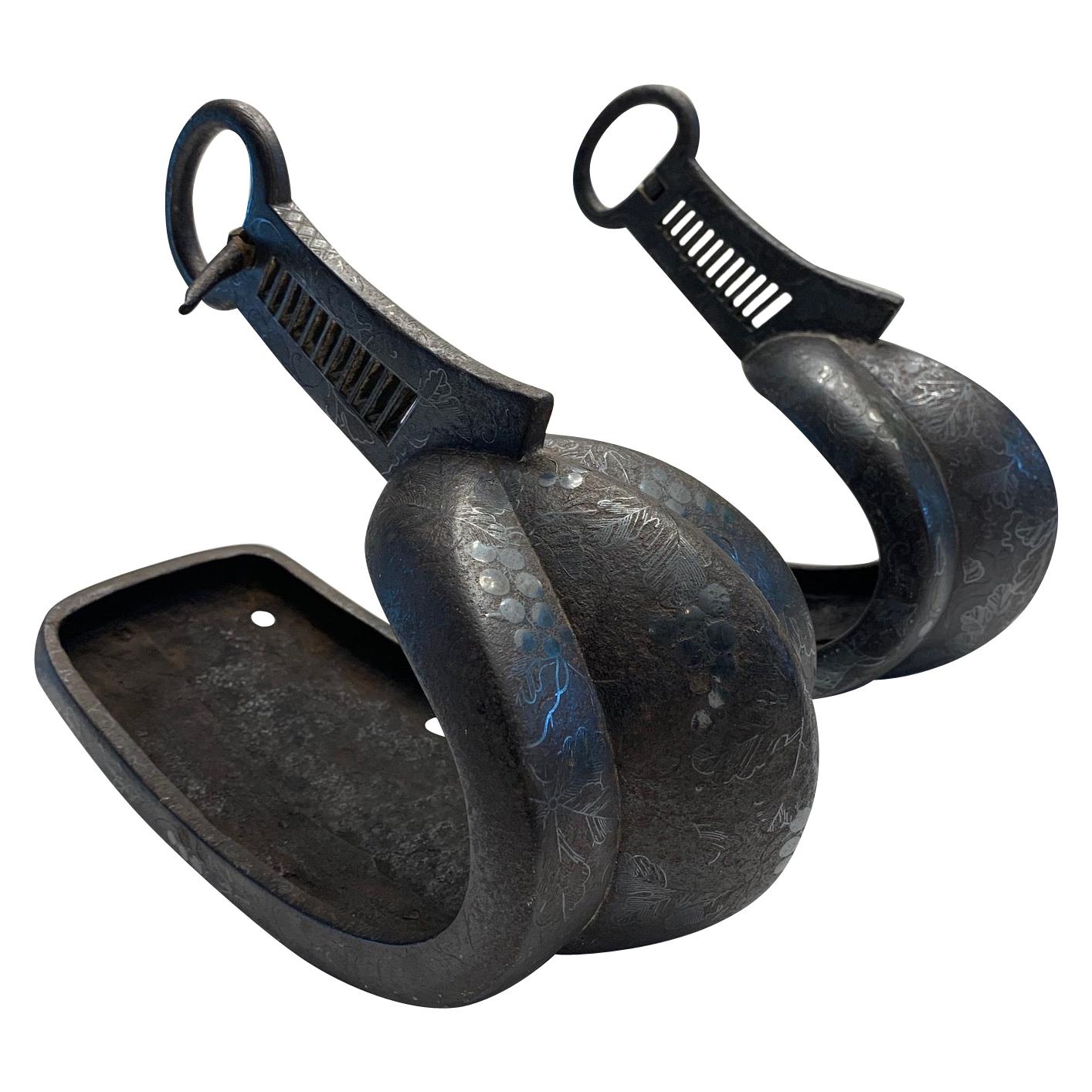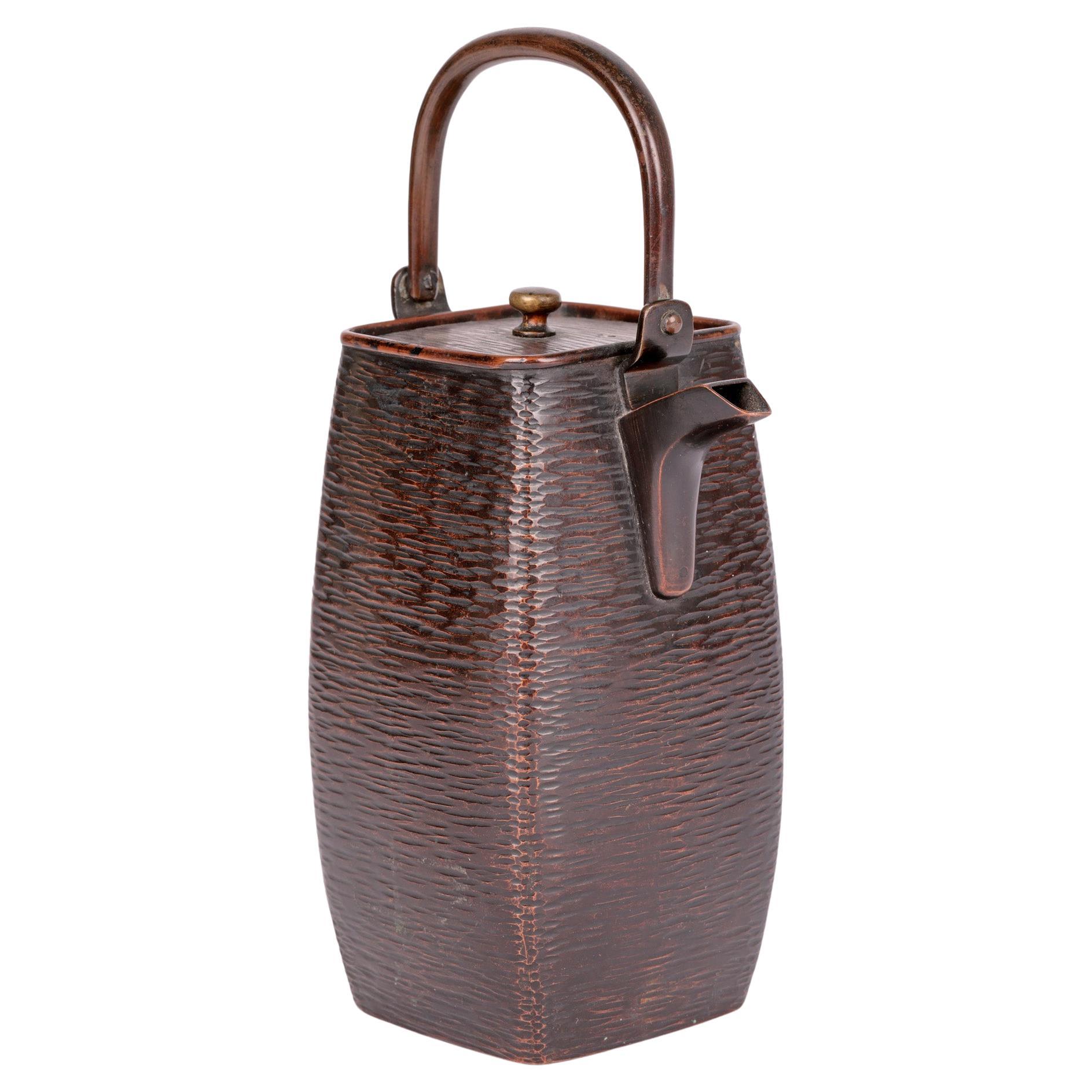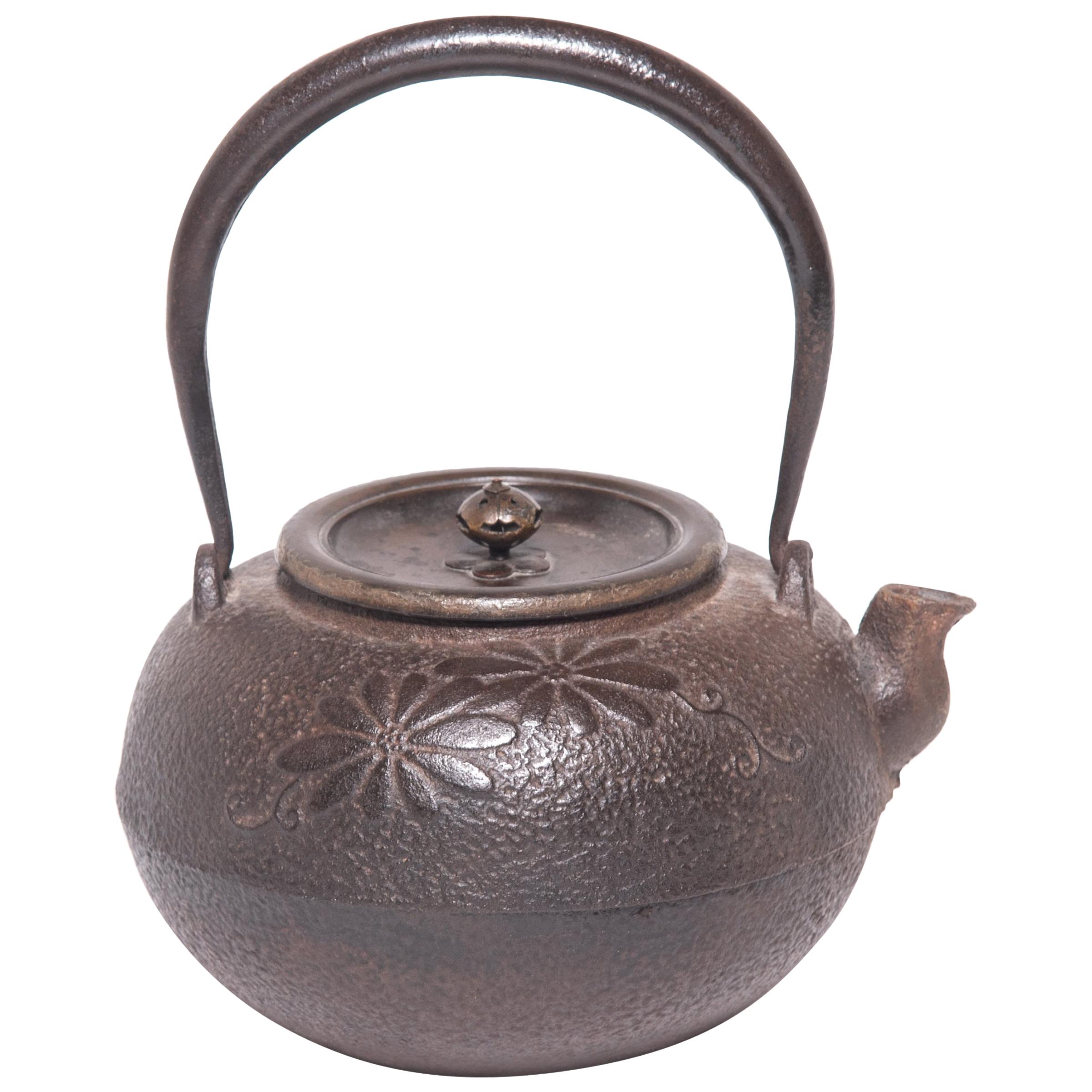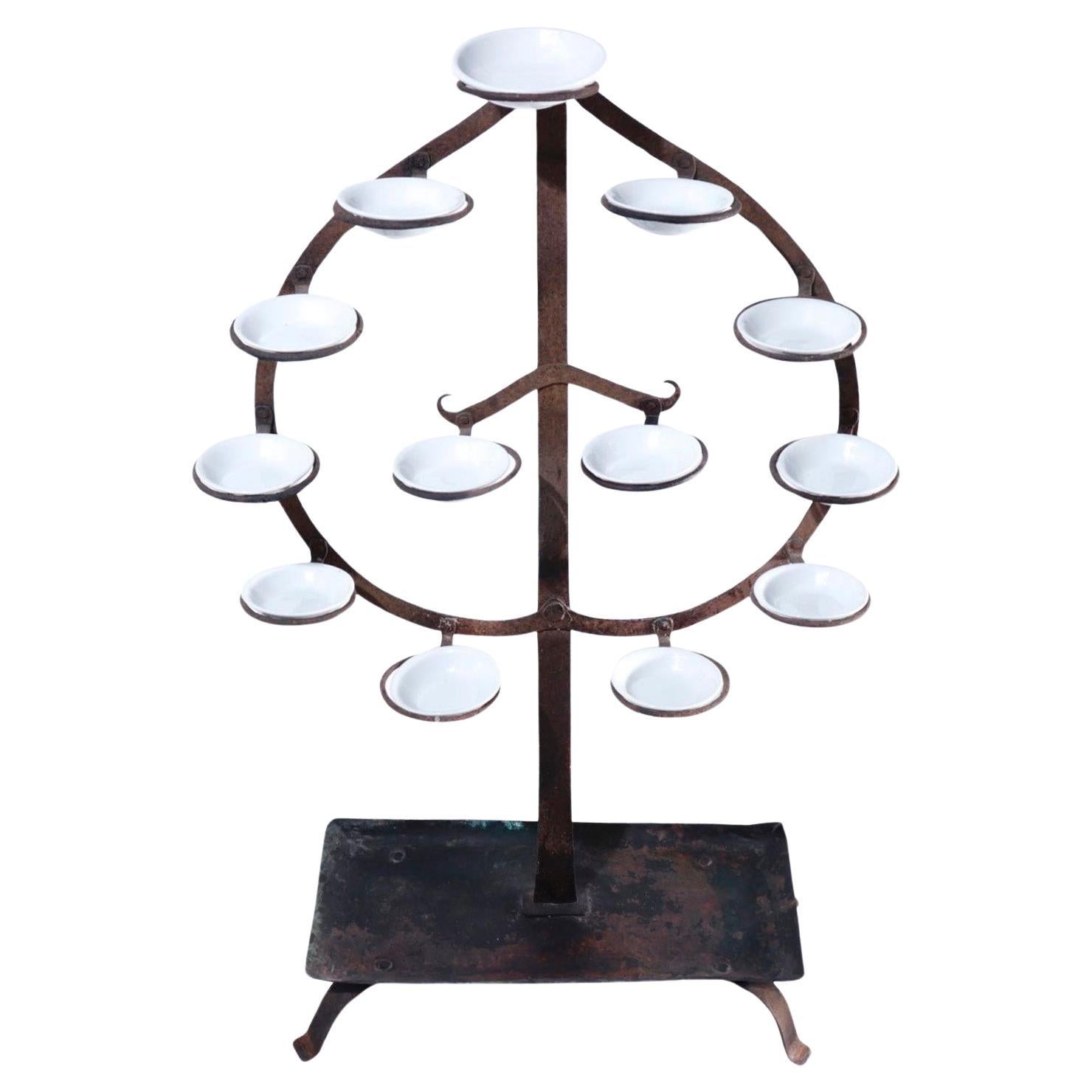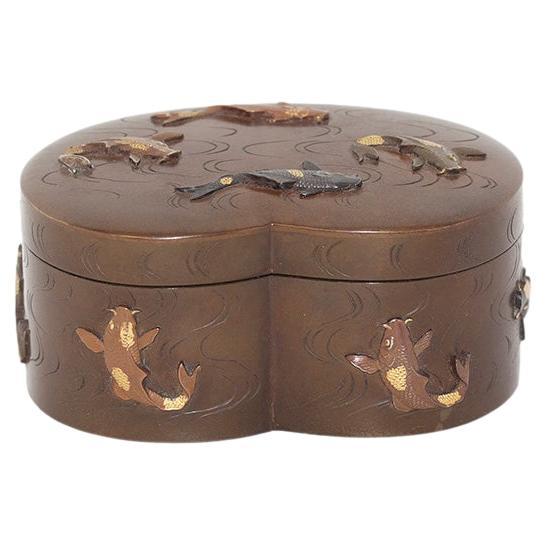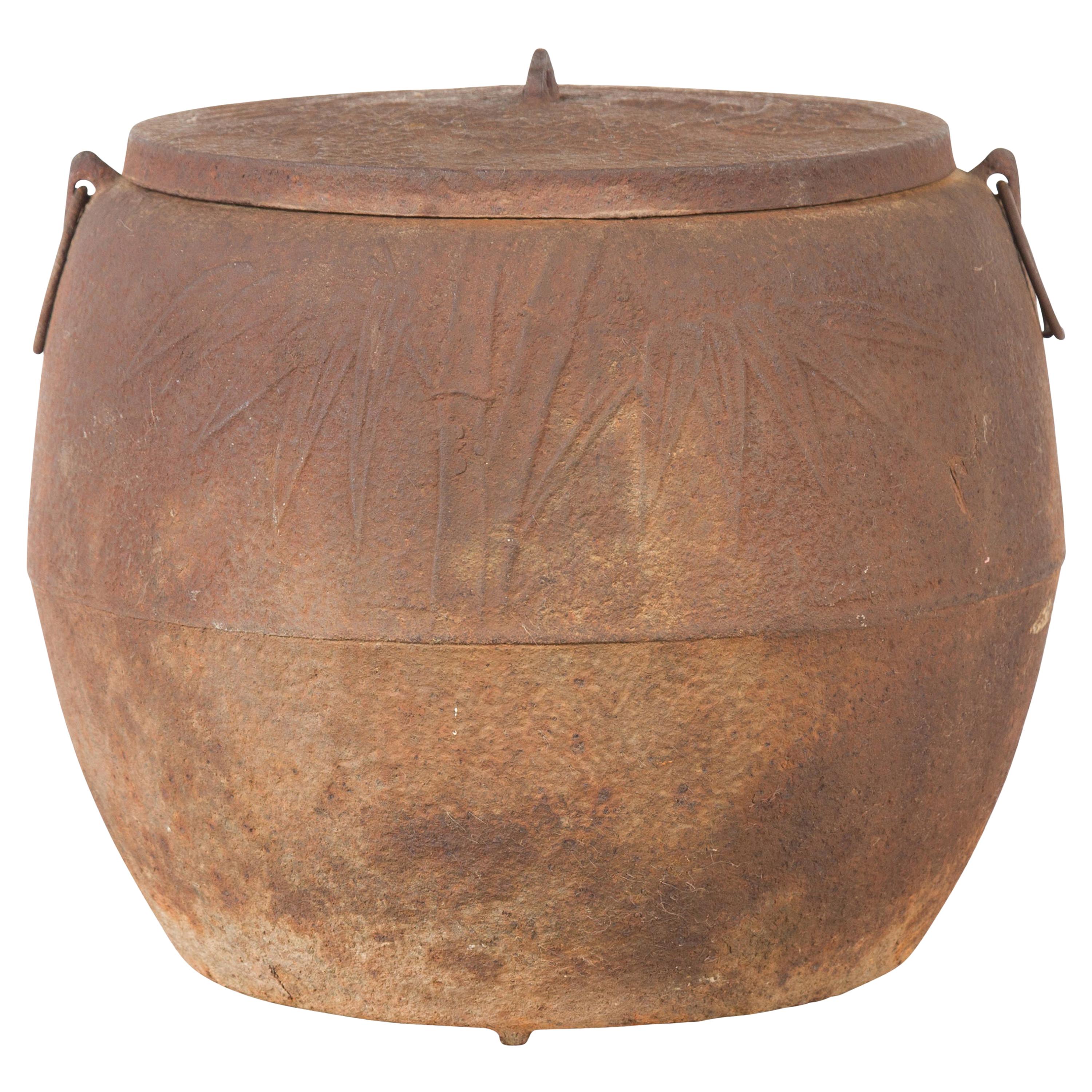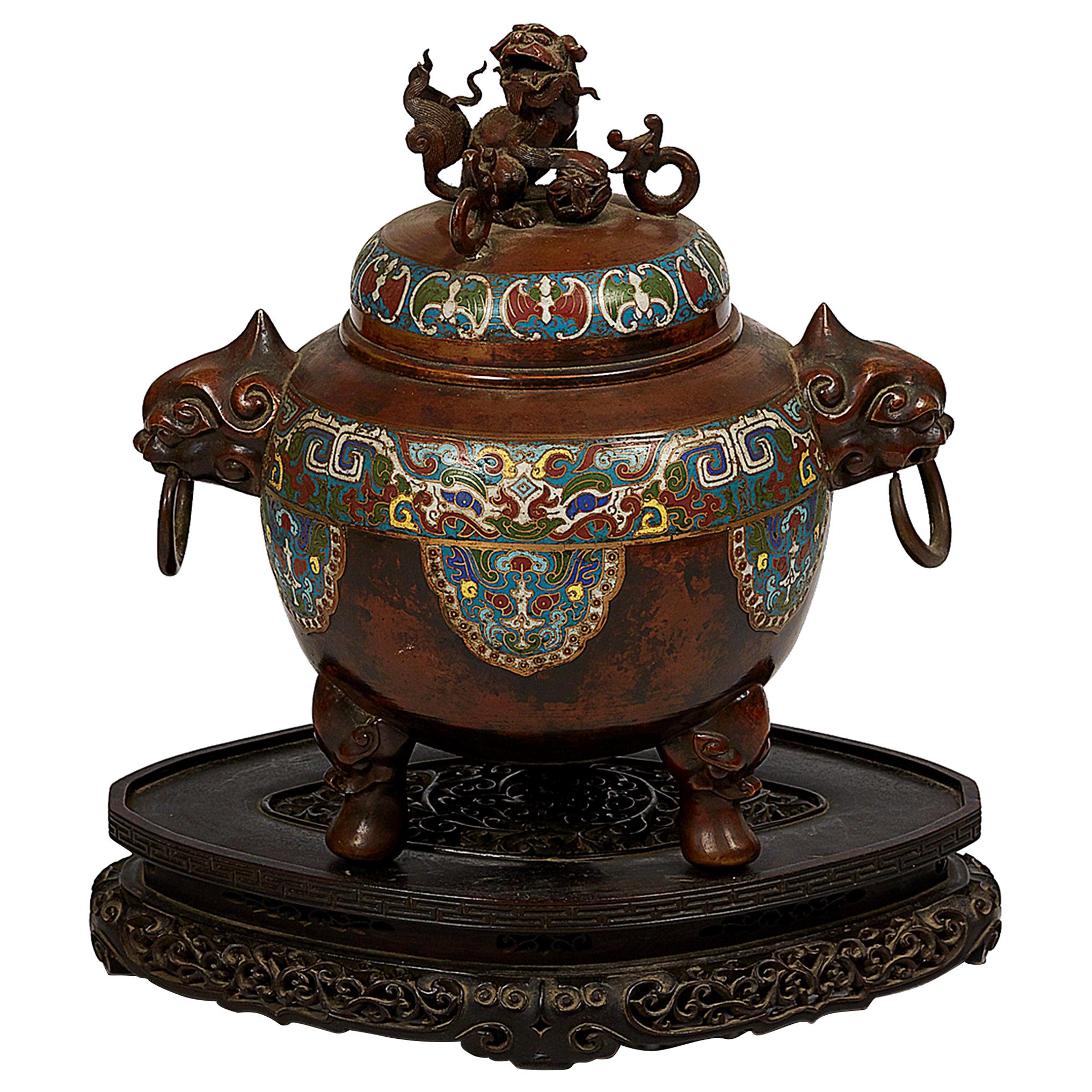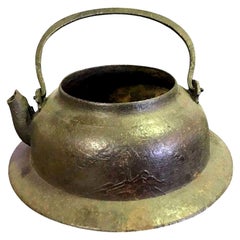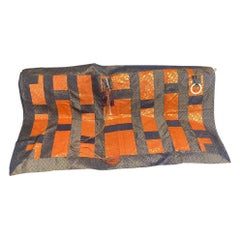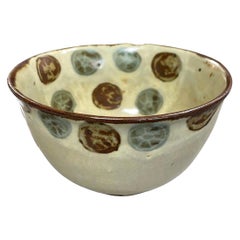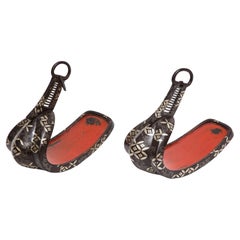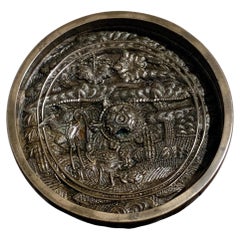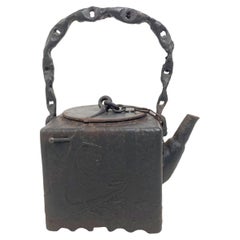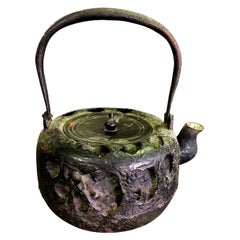
Japanese Edo Period Iron Tetsubin Tea Pot Kettle with Turtle Motif Decoration
View Similar Items
Want more images or videos?
Request additional images or videos from the seller
1 of 14
Japanese Edo Period Iron Tetsubin Tea Pot Kettle with Turtle Motif Decoration
About the Item
- Dimensions:Height: 10.25 in (26.04 cm)Width: 9 in (22.86 cm)Depth: 8 in (20.32 cm)
- Style:Edo (Of the Period)
- Materials and Techniques:
- Place of Origin:
- Period:
- Date of Manufacture:1800s
- Condition:Wear consistent with age and use. In very good vintage condition with natural aged wear (please see photos). A gorgeous and quite unique work overall.
- Seller Location:Studio City, CA
- Reference Number:1stDibs: LU2254318592392
About the Seller
4.9
Platinum Seller
These expertly vetted sellers are 1stDibs' most experienced sellers and are rated highest by our customers.
1stDibs seller since 2016
759 sales on 1stDibs
More From This SellerView All
- Japanese Cast Iron Tea Kettle Water Pot Tetsubin, Late 19th CenturyLocated in Studio City, CAA large, heavy and uniquely shaped Japanese cast iron teapot tetsubin without top. Likely late 19th-early 20th century. From a collecti...Category
Antique Late 19th Century Japanese Meiji Metalwork
MaterialsIron
- Japanese Edo Buddhist Monk Priest 7 Column Silk Brocade Kesa Ceremonial RobeLocated in Studio City, CAA wonderful, brightly coloured and somewhat rare fully intact Japanese Buddhist monk/ priest's Kesa ceremonial silk robe. Kesa (which came from the Chinese word "kasaya") robes have been handmade/handstitched by monks/priests as an act of devotion as ceremonial robes for centuries in various Asian cultures (Japanese, Chinese, Korean, Vietnamese, Indian, etc). The kesa is a rectangular garment designed to be worn over the left shoulder (see example image). The robes are made (often in a patchwork column pattern ranging from five, seven, nine or more pannels) specifically for fully ordained Buddhist monks, priests and nuns and are made from donations of exquisite textiles from wealthy patrons of Japanese Buddhist temples. The robes were used in daily ceremonies, temple gatherings, and private meditation. Antique Kesa robes...Category
Antique 19th Century Japanese Edo Textiles
MaterialsTextile, Brocade, Silk
- Ogata Kenzan Signed Japanese Asian Edo Period Pottery Tea Bowl ChawanLocated in Studio City, CAA spectacularly designed and beautifully made Chawan tea bowl dating back to the Edo period. This work is attributed to Ogata Kenzan who is widely conside...Category
Antique 18th Century Japanese Edo Ceramics
MaterialsPottery
- Japanese Temple Buddhist Monk Samurai Juzu Prayer Beads Mala Rosary NecklaceLocated in Studio City, CAA truly magnificent and special work - this beautiful and exceptionally long string of Japanese hand-crafted natural wood (perhaps Rosewood) Buddhist Juzu mala beads. These rosary-type large prayer bead necklaces were used by Buddhist monks in temple prayers/rituals and worn by Samurai as amulets of protection. During the Edo period, Buddhist priests/monks and samurai warriors used to wrap the beads around their bodies and use the beads in their worshipping and meditation ceremonies. After reading the sutra once, one bead would be moved (some sects used them instead of wooden tally counters). It would take a tremendous amount of intense concentration and physical stamina to read the sutra while holding and counting/moving each individual prayer bead as well as a copious amount of time to move all the prayer beads to complete the sutra cycle. We have not come across another set of Juzu beads...Category
Antique Early 19th Century Japanese Edo Sculptures and Carvings
MaterialsWood
- Japanese, Signed Stamped Silk Obi Sash Belt with Temple Shrine, Mid-1900sLocated in Studio City, CAA wonderful handmade vintage silk obi sash / belt featuring a Japanese temple - purportedly Kiyomizu temple in Kyoto, among the forest trees. Signed a...Category
Mid-20th Century Japanese Showa Textiles
MaterialsSilk
- Japanese Wood Carved Polychrome Sculpture of a Seated Temple Monk, Edo PeriodLocated in Studio City, CAThis is truly a wonderful piece with clear age and a nice patina to it. Very unique. We have not seen another quite like it. The monk appears to have glass eyes which gives his expression a very humanistic feel. The head is removable (please see the last image). From a collection of Japanese arts and artifacts. Most likely dates back to the Edo period. Would make for a nice addition to any Japanese or Asian artifacts...Category
Antique 18th Century Japanese Edo Sculptures and Carvings
MaterialsWood, Lacquer
You May Also Like
- Pair of Japanese Edo Period Iron Silver Inlaid Red Lacquered Stirrups 'Abumi'Located in New York, NYA Pair of Japanese Edo Period (1603–1867) iron, silver inlaid, and red lacquered stirrups (Abumi). Each of typical form, made of iron with silver inlay on the front with floral bloss...Category
Antique 1690s Japanese Edo Metalwork
MaterialsIron, Silver
- Japanese Cast Bronze "Longevity" Mirror, Edo Period, 18th Century, JapanLocated in Austin, TXA heavy and finely cast Japanese bronze mirror with longevity symbols, Edo Period, 18th century, Japan. The small, round mirror with high walls...Category
Antique Late 18th Century Japanese Edo Metalwork
MaterialsBronze
- Japanese Cast Iron Tea Pot (Tetsubin) of Square Form with Anchor & Sword, SignedLocated in Chapel Hill, NC19th Century Japanese cast iron teapot or tetsubin of cube form with anchor chain handle, one side cast with a navel anchor continuing around the back and to the top where the top ri...Category
Antique Late 19th Century Japanese Folk Art Metalwork
MaterialsIron
- “Fanning the Fire” Japanese Tetsubin Kettle, c. 1924Located in Chicago, ILDecorated with a raised fan motif, this aptly named teapot was used to boil water for traditional tea ceremonies. Known as tetsubin, the kettle’s cast-iron construction is said to ch...Category
Early 20th Century Japanese Taisho Metalwork
MaterialsIron
- Antique Japanese Iron Stirrups with Silver Inlay SignedLocated in Atlanta, GAA pair of antique Japanese Abumis, stirrup for horse-riding, in cast iron with elaborate silver inlay, circa 16th century Muramachi to Momoyama period. The prototype of Japanese abum...Category
Antique 16th Century Japanese Japonisme Metalwork
MaterialsSilver, Iron
- Japanese Meiji Bronze Basketweave Pattern Sake PotLocated in Bishop's Stortford, HertfordshireAn exceptional quality Japanese Meiji bronze sake pot decorated with a basket weave patterning dating between 1868 and 1912 and probably made around 1890. The...Category
Antique 1890s Japanese Meiji Metalwork
MaterialsBronze
Recently Viewed
View AllMore Ways To Browse
T Tea Pot
Japanese Iron Pot
19th Century Kettle Stand
Japanese Kettle
Antique Japanese Tea Pot
Antique Japanese Tea Pots
Japanese Edo Pot
Antique Black Kettle
Turtle Iron
Japan Tea Kettle
Artist Tea Pots
Japanese Tea Kettle
T Kettles
Japanese Iron Kettle
Asian Tea Kettle
Antique Black Iron Kettles
Japanese Iron Tea Pot
Japanese Tetsubin
